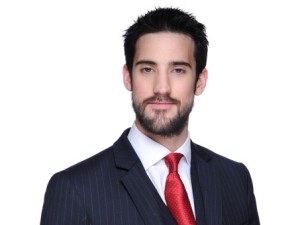
Find Barrister by Expertise:
- View All
- Personal Injury
- Travel & International Law
- Civil Fraud
- Employment
- Crime
- Health & Safety
- Clinical Negligence
- Regulatory & Disciplinary
- Criminal Fraud
- Inquests
- General Common Law
- Industrial Disease
- Insurance
- Sports Law
- Credit Hire
- Professional Negligence
- Public Inquiries
- Public Law
- Trusts & Probate
- Costs
- Mediation & Arbitration
- Commercial
- Public Access
- Education

Jake Rowley successfully obtains a finding of ‘fundamental dishonesty’ whilst acting on behalf of the successful Defendant driver (‘D’) in a Fast Track trial arising out of an alleged road traffic accident on a roundabout.
The Parties’ Cases
The Claimant (‘C’) alleged that he had come to a stop at a set of traffic lights that controlled entry onto a large roundabout; he was stationary behind two other vehicles at that point. As the lights turned green he moved onto the roundabout behind the two vehicles in front of him and was able to travel around the roundabout through another set of green lights, eventually coming to a stop at a third set of lights further around. As the third set of lights turned green he claimed to have moved off, accelerating to approximately 30mph, and had travelled approximately one car length over the white stop line when he was hit from the rear by D. He claimed that the D had entered the roundabout at some point after him and had travelled at a speed of 40mph – 60mph, driving into his vehicle. C alleged that at no point prior to joining the roundabout or whilst travelling around it had the D been behind him and that he had not seen the D until immediately before the collision took place. C claimed to have suffered damage to his vehicle as well as personal injury. The damage to C’s car was very minor.
D denied there having been any collision whatsoever. The D’s case was that he had stopped behind the C at the first traffic light that controlled entry onto the roundabout and had noticed the C looking at D in his rear view mirror and fiddling with something in the centre console of his car. The D later formed the view that the C had been writing down his number plate at this point. D claimed that when the first traffic light turned green the vehicles moved onto the roundabout and the C was driving slowly and erratically, straddling two lanes of traffic. D alleged that they were stopped by a red light at the first set of lights on the roundabout itself; he was still directly behind the C. When that light became green the vehicles moved on to the third set of lights which were also on red; the vehicles again came to a stop. When those lights became green both C and D moved off and after a short distance C performed an emergency stop for no reason other than to induce a collision; D was, however, able to bring his car to a stop without a collision taking place. There was no damage to the D’s car.
Judgment
Following extensive cross-examination of the Claimant the Judge dismissed the claim, rejecting in its entirety the C’s account and accepting in full the D’s account. The Court found that the C’s account simply did not stand up to scrutiny, that the C’s account of the D not being behind him was implausible considering the locus and the nature of the traffic lights, and that at the speed of collision as alleged by C, the damage to the C’s car would have been much more severe than it in fact was. He found that the C had been untruthful in many respects of his evidence and that the C had braked suddenly as alleged by the D.
Costs Submissions – ‘Fundamental Dishonesty’
Upon dismissal of the claim Jake made an oral application under CPR r. 44.16(1) for permission to enforce the costs order that had been made on the ground that the claim was ‘fundamentally dishonest’. The application was strenuously opposed by Counsel for the Claimant.
In support of the application Jake relied on the dicta of HHJ Maloney QC in Gosling v (1) Hailo; (2) Screwfix Direct (specifically paragraphs 44 and 45) and submitted that the claim was clearly founded on a false basis which the Court had rejected in its entirety, namely that a collision had taken place. The falsity of C’s allegations went to the very root of the claim and it was therefore fundamentally dishonest. The Judge found that, having accepted entirely D’s account and having rejected entirely C’s account, it was difficult to argue that the Claimant had any reasonable grounds for believing that a collision had occurred. On that basis he considered that there was such a degree of dishonesty, or lack of truth, in the account that the Claimant had provided that it was correct to decide there be an exception to QOCS and to give permission for the costs to be enforced.
Author: Jake Rowley Farrars (chambers@farrarsbuilding.co.uk)